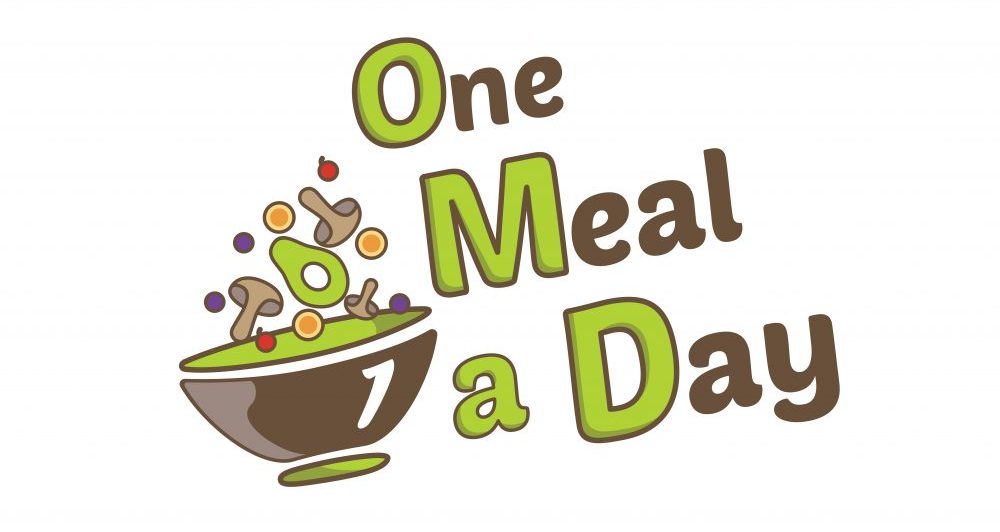
The OMAD Diet: Why Eating One Meal A Day Isn’t Prescribed By Nutritionists

You might already be familiar with the time-restricted eating method called intermittent fasting, which usually has a 4 or 8-hour eating window. But now, there’s an extreme version of it called the One Meal A Day (OMAD) diet that’s becoming quite popular. However, it only has a one-hour eating window, which leaves you in a fasted state for the remaining 23 hours of the day.
Although different kinds of intermittent fasting have been proven to be effective in shedding weight, the OMAD diet isn’t endorsed by nutritionists. It can even be hazardous for people with health issues. Here’s all you need to know.

WAYHOME studio/Shutterstock
Eating On The OMAD Diet
The OMAD diet doesn’t limit the kind of food or the number of calories you can consume during its one-hour eating window. Nonetheless, people should look to eat the suggested amount of calories for their age, gender, height, and weight to reach their daily energy requirements in that meal. In fact, most adults shouldn’t consume less than 1200 daily.
Also, it’s essential to be properly hydrated on the OMAD diet. You can drink water, tea, or coffee all day long while on this diet, but other beverages aren’t allowed. Eating should also take place at the same time every day to guarantee the consistency of your 23-hour fasting period. It’s best to eat after you’ve been most active in the day to help your body recuperate from working out, thus replacing nutrients that were lost throughout the activity.

Maren Winter/Shutterstock
What Science Has To Say About It
Intermittent fasting, allowing a 4 or 8-hour eating window, and less extreme versions of it have been proven to enhance glucose tolerance, boost insulin sensitivity, and help in weight loss. Still, having one huge meal can produce the opposite outcome of dieting.
A study in the Nutrition Reviews journal from 2015 warns against the likes of the OMAD diet because it can cause an unnatural increase in appetite. Body fat percentage can also go over where you were when you began the regime.
According to registered dietitian Melissa Rifkin, owner of Melissa Rifkin Nutrition in New York City, eating once a day can make you feel weak and ill. So when it’s time to eat, you may find yourself overeating, which can cause an insulin surge directly linked to feeling unwell right after.
Who shouldn’t Go On The OMAD Diet?
Rifkin cautions that the OMAD diet can be a danger to kids, elderly, and folks with health diseases like diabetes since they require regular consumption of calories to secure proper health. Also, people who regularly take prescription drugs should stay away from this diet because most medicines require them to eat.
It could be safe for healthy adults, but that doesn’t mean it is advisable since there’s not enough research on it. Plus, there are other healthier methods like eating lean protein, lots of produce, and quality fats and carbs that can help people eat while attaining their goals.
More in Health & Well-being
-
`
Why Adults With ADHD Are 3x More Likely to Develop Dementia
We have all heard of ADHD, haven’t we? Hyper kids, distractions galore, restless minds – these are images we often associate...
December 11, 2023 -
`
Signs of Emotional Connection in Relationships
Building a strong connection with someone isn’t just about being in sync or sharing hobbies—it’s about that deeper bond, where you...
December 4, 2023 -
`
Hollywood’s Shortest Marriages: Britney Spears, Carmen Electra & More!
In the glitzy world of Hollywood, where fairy tales often unfold on the silver screen, there exists a flip side—a realm...
December 3, 2023 -
`
The Surprising Benefits of Unplugging
In today’s hyper-connected world, where we are constantly bombarded with notifications, messages, and the allure of social media, disconnecting may seem...
November 26, 2023 -
`
How “Looking Your Best” Improves Our Wellbeing
Most of us have had moments standing in front of our closet, deciding on an outfit for the day. And we...
November 15, 2023 -
`
Therapy? Medication? What Are the Treatments for PTSD
Post-Traumatic Stress Disorder (PTSD) is a common after-effect of traumatic events. It can be a debilitating condition, but the good news...
November 7, 2023 -
`
Meet the Woman Who ALMOST Married Barack Obama
Barack Obama’s life has been a captivating narrative, often told and retold, with each revelation adding layers of intrigue to his...
November 5, 2023 -
`
The Rise of Caviar Bumps, Thanks to Gen Z
In an intriguing twist of culinary culture, millennials and Gen Zers are drawn to an unusual indulgence – fish eggs, or...
October 28, 2023 -
`
Everything You Need to Know About Acid Reflux, Heartburn and GERD
Ever had that burning-in-the-chest sensation after a meal? Or perhaps you have lain awake at night with an odd sour taste...
October 17, 2023















You must be logged in to post a comment Login